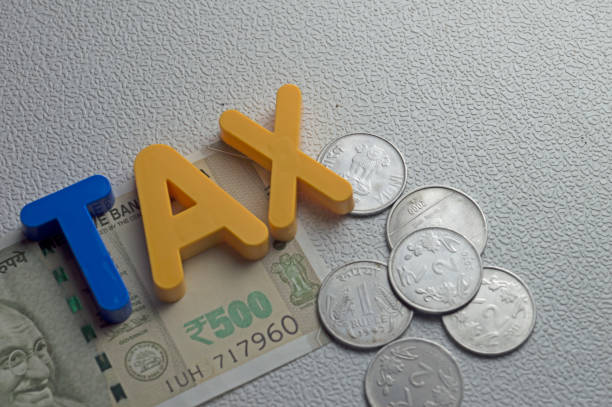Contents
The world of cryptocurrencies has gained immense popularity and traction in recent years. As more individuals and businesses embrace this digital revolution, governments across the globe are taking note of the implications and considering regulatory measures to ensure transparency and taxation. In line with this, the government may consider levying Tax Deducted at Source (TDS) and Tax Collected at Source (TCS) on cryptocurrency trading. This move aims to streamline the taxation process and enhance the government’s ability to monitor and regulate transactions in this emerging asset class.
The Growing Need for Regulation:
Cryptocurrencies, such as Bitcoin, Ethereum, and others, operate on decentralized networks and are not governed by any central authority. This unique characteristic has posed challenges for governments worldwide in terms of taxation and financial oversight. Without proper regulations, cryptocurrency transactions could potentially be used for money laundering, tax evasion, and other illicit activities.
Governments recognize the need to bring cryptocurrencies within the legal framework to safeguard the interests of investors and ensure compliance with existing financial regulations. By implementing TDS and TCS on cryptocurrency trading, the government can enforce greater transparency and accountability, thereby mitigating potential risks associated with this digital asset.
Understanding TDS and TCS:
Tax Deducted at Source (TDS) and Tax Collected at Source (TCS) are tax provisions widely used in the Indian tax system. TDS is a mechanism in which tax is deducted by the payer at the time of making certain payments, and the deducted amount is deposited with the government. TCS, on the other hand, is a similar provision wherein the tax is collected by the seller from the buyer and remitted to the government.
Applying TDS and TCS to Cryptocurrency Trading:
By incorporating TDS and TCS in cryptocurrency trading, the government can ensure that taxes are collected at the source, i.e., during the transaction itself. This approach holds multiple benefits, including:
Enhanced Tax Compliance: TDS and TCS provisions will help bring cryptocurrency trading under the tax net, ensuring that individuals and businesses fulfill their tax obligations.
Greater Financial Oversight: With TDS and TCS, the government can keep a closer eye on cryptocurrency transactions, preventing tax evasion and illicit activities.
Streamlined Taxation Process: By collecting taxes at the time of the transaction, the burden of tax compliance is distributed between buyers, sellers, and exchanges, simplifying the overall taxation process.
Conclusion:
The implementation of TDS and TCS on cryptocurrency trading reflects the government’s commitment to embracing this digital revolution while maintaining financial integrity and transparency. This step will not only help regulate the cryptocurrency market but also contribute to a fair and accountable financial ecosystem. By ensuring tax compliance and monitoring transactions, the government can strike a balance between facilitating innovation and protecting the interests of stakeholders.
Related FAQs:
Q1. How will TDS and TCS impact cryptocurrency traders?
A1. TDS and TCS provisions will require traders to deduct or collect taxes on cryptocurrency transactions, ensuring compliance with tax regulations and facilitating financial oversight.
Q2. Will TDS and TCS make cryptocurrency trading less attractive?
A2. While the implementation of TDS and TCS may introduce additional compliance requirements, it also contributes to a more regulated and transparent market, potentially attracting more mainstream investors.
Q3. How will the government enforce TDS and TCS on cryptocurrency transactions?
A3. The government may collaborate with cryptocurrency exchanges and use blockchain technology to monitor and enforce TDS and TCS provisions on transactions.
Q4. Will TDS and TCS impact the growth of the cryptocurrency industry?
A4. TDS and TCS aim to promote responsible and legal cryptocurrency trading, which can foster the industry’s growth by increasing trust and reducing the
Q4. Will TDS and TCS impact the growth of the cryptocurrency industry?
A4. TDS and TCS aim to promote responsible and legal cryptocurrency trading, which can foster the industry’s growth by increasing trust and reducing the potential for illicit activities. While the implementation of these provisions may introduce additional compliance requirements, it also contributes to a more regulated and transparent market. This enhanced oversight can attract more mainstream investors who may have been hesitant due to concerns about the lack of regulation. By establishing a clear tax framework, the government can create a level playing field for cryptocurrency businesses, encouraging innovation and long-term growth in the industry.




